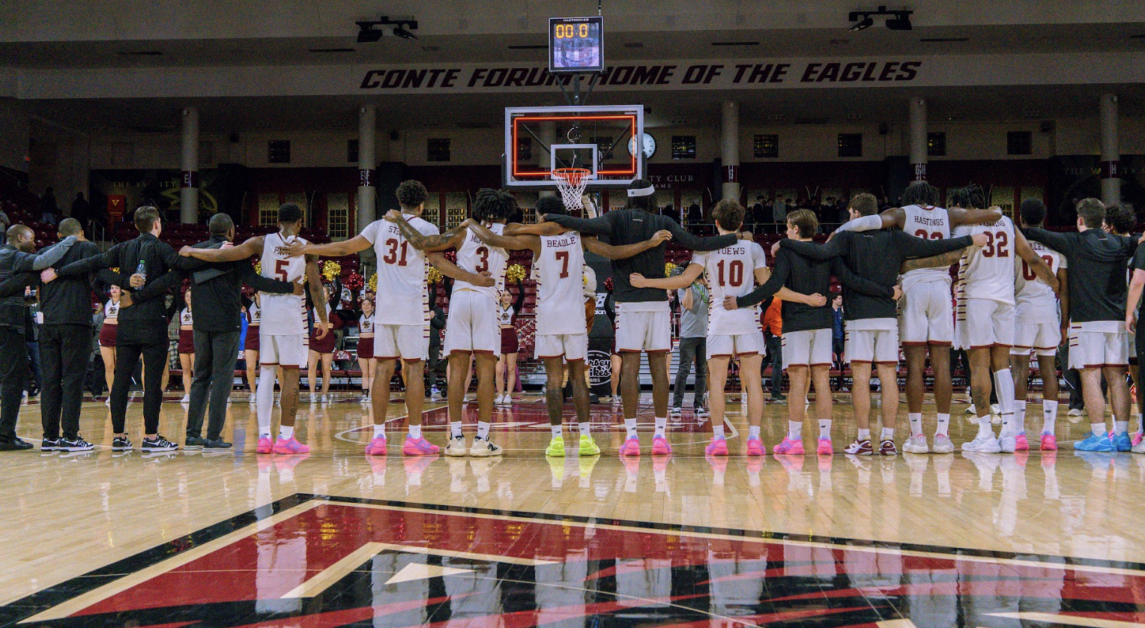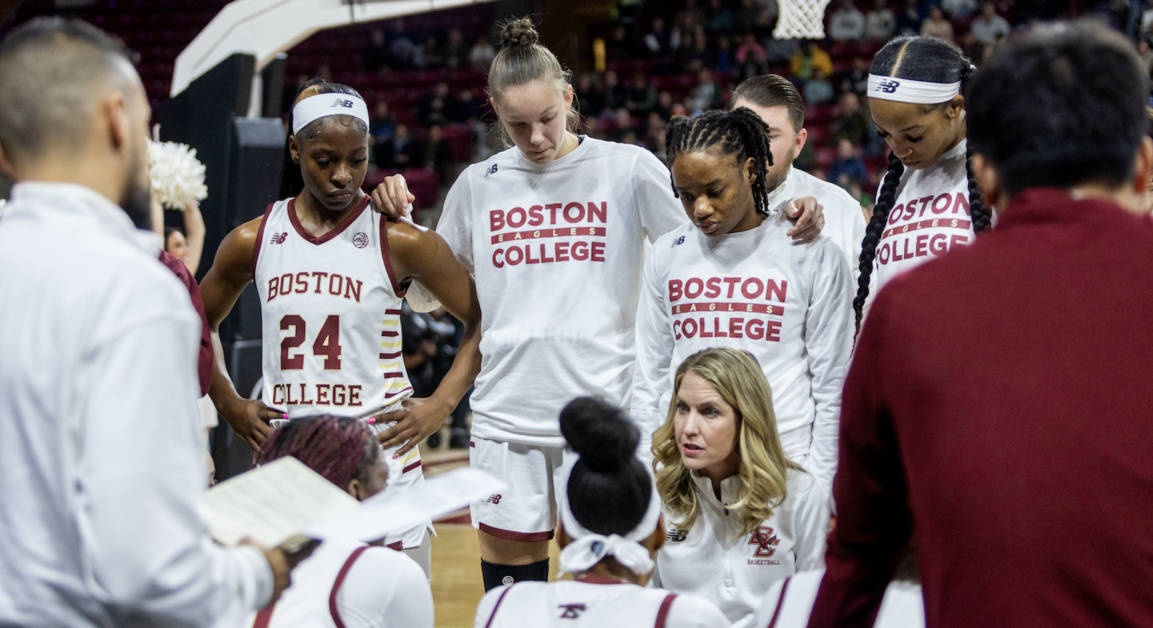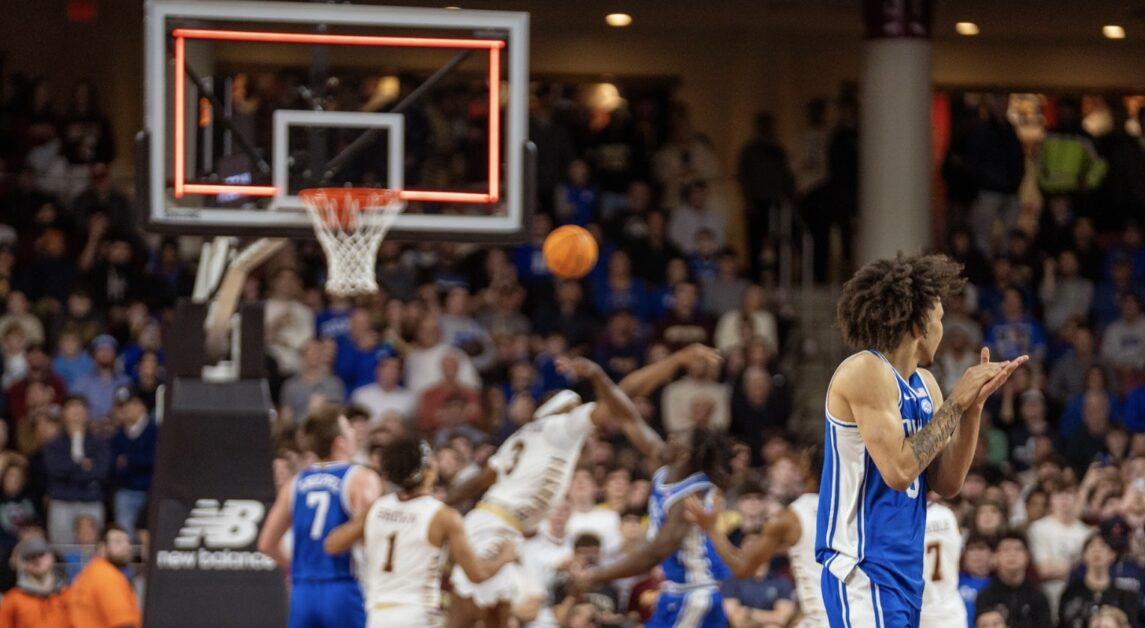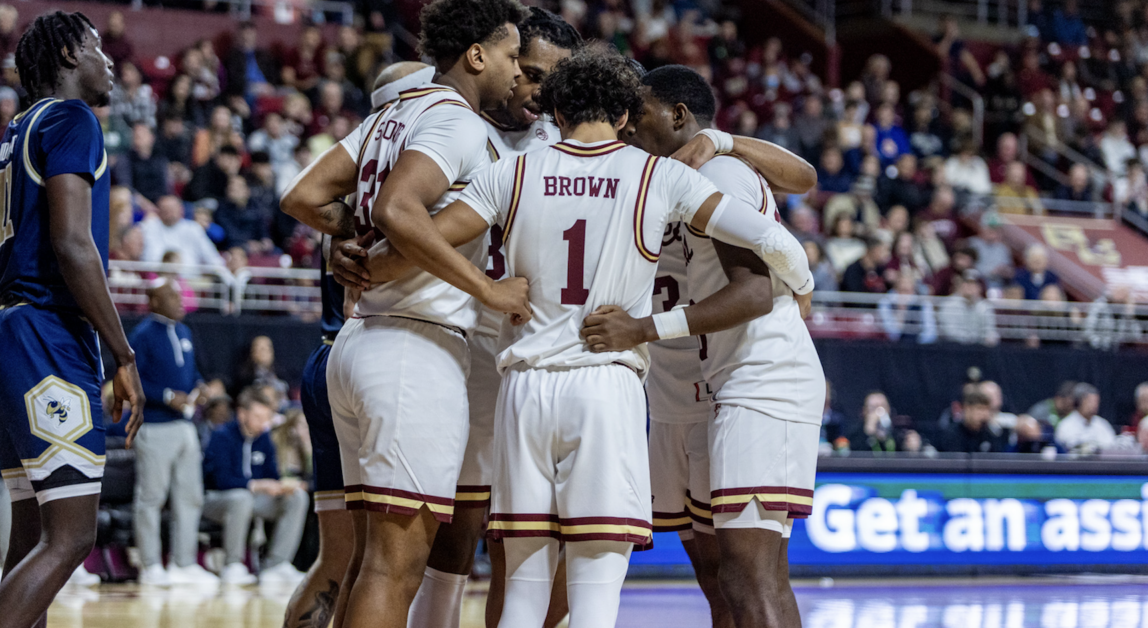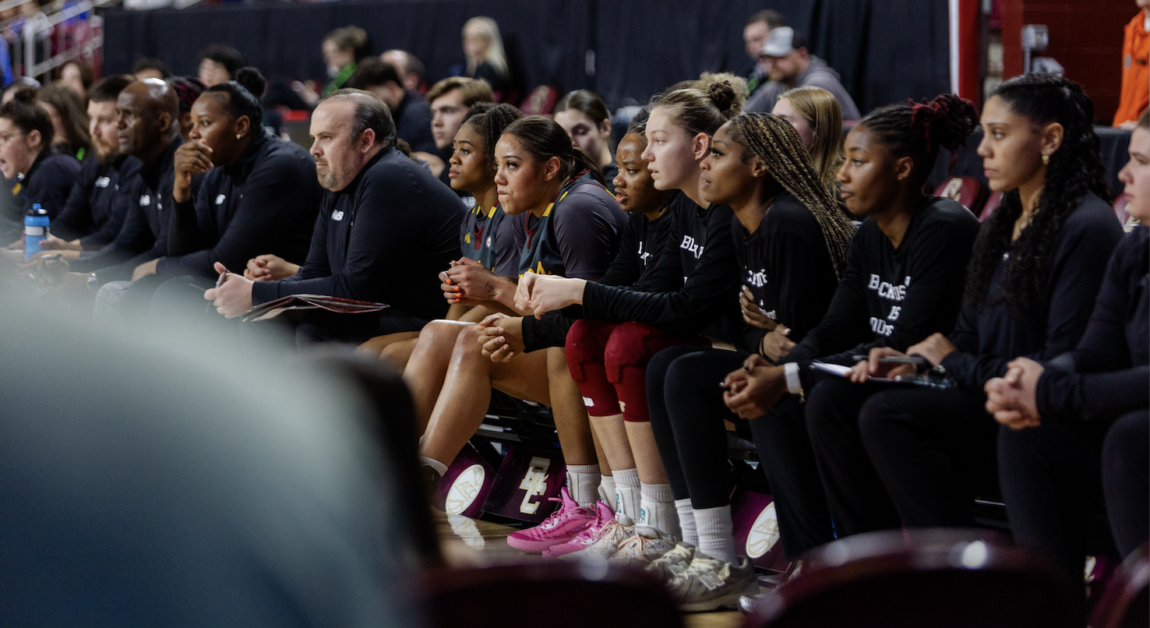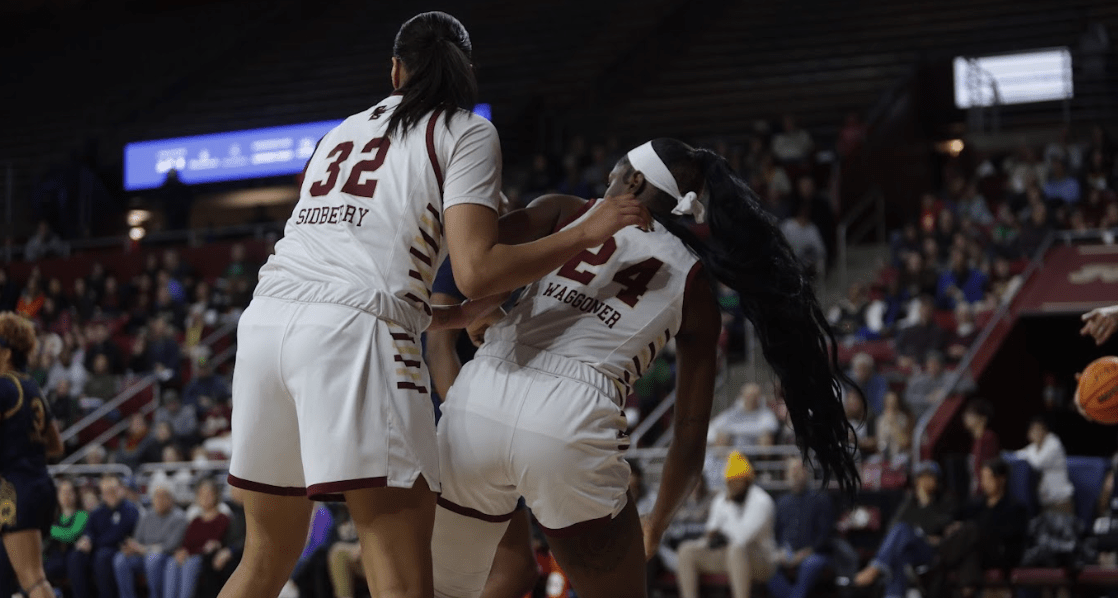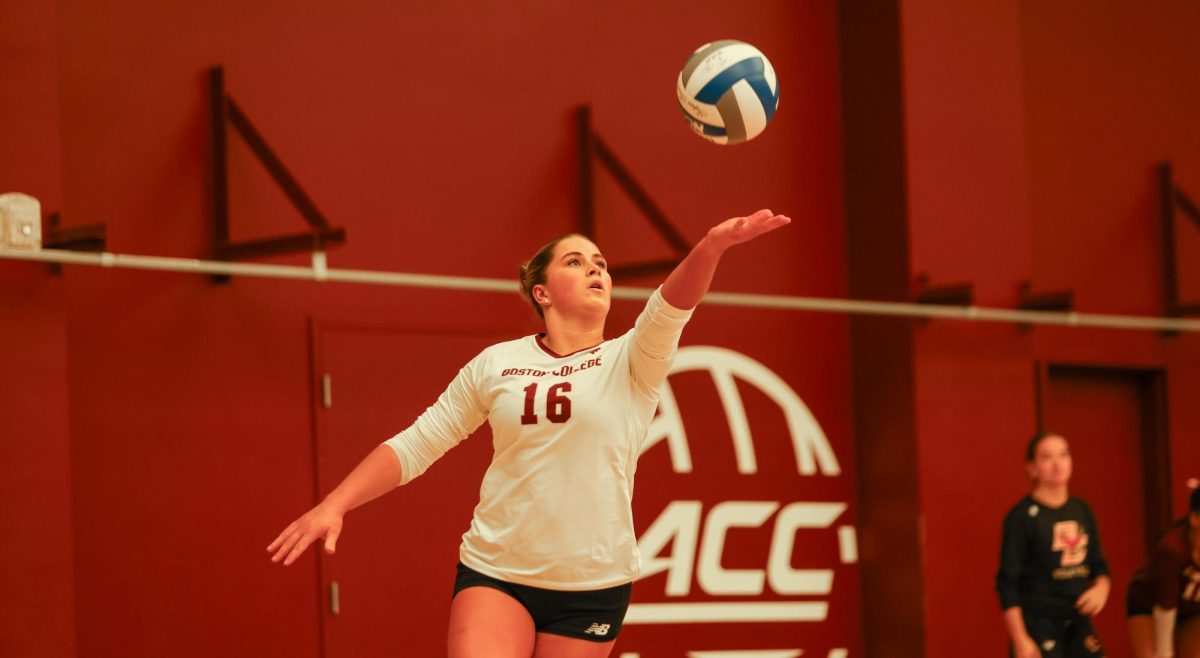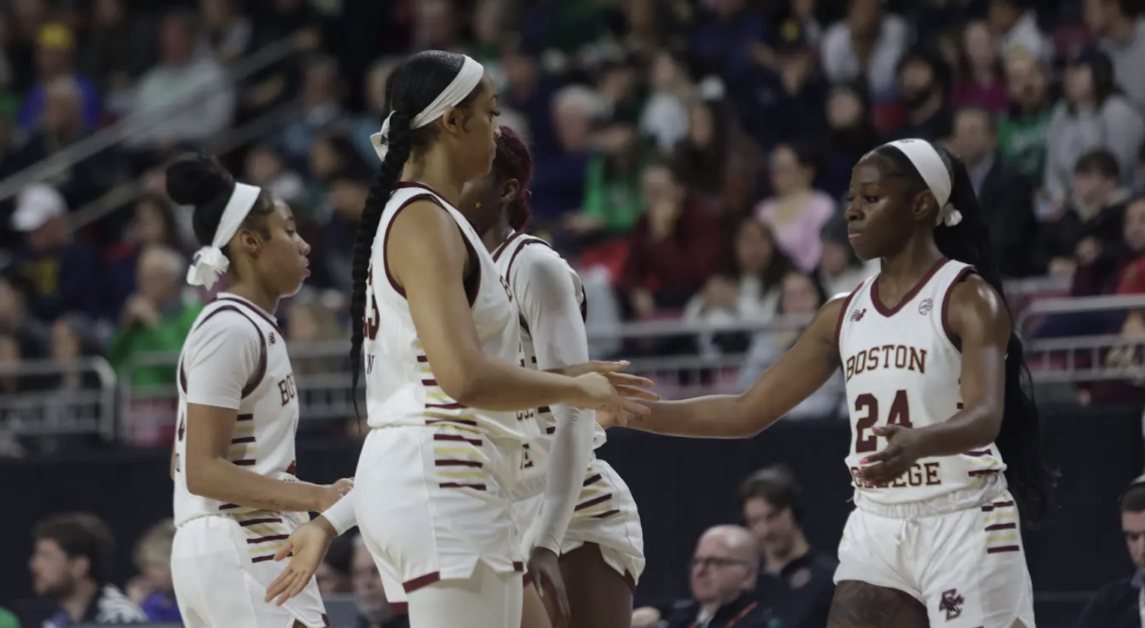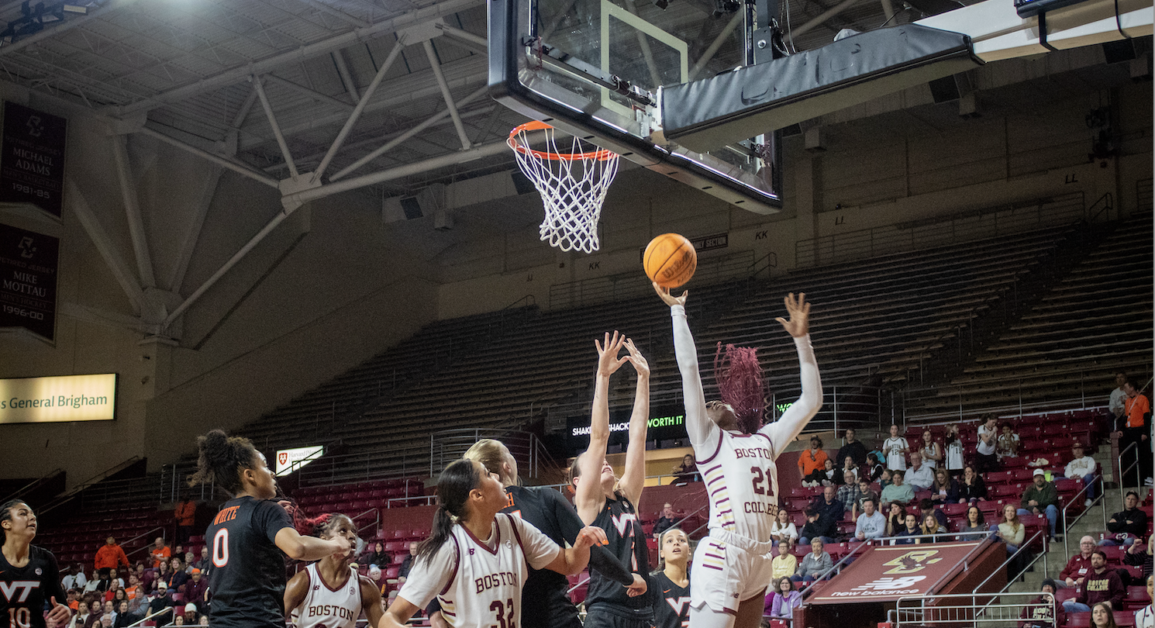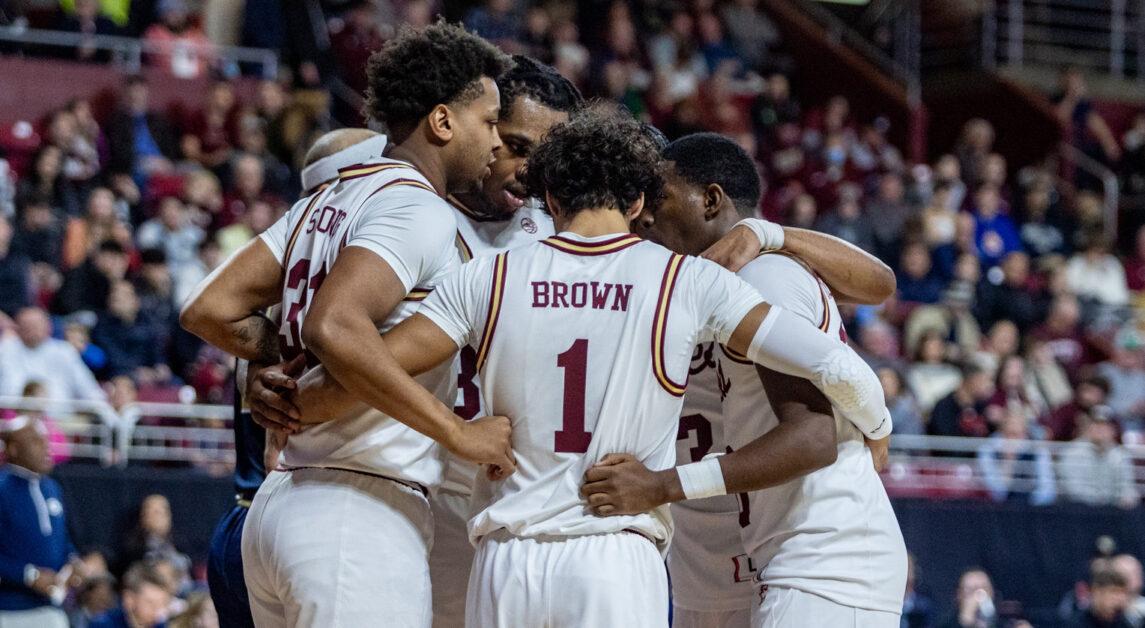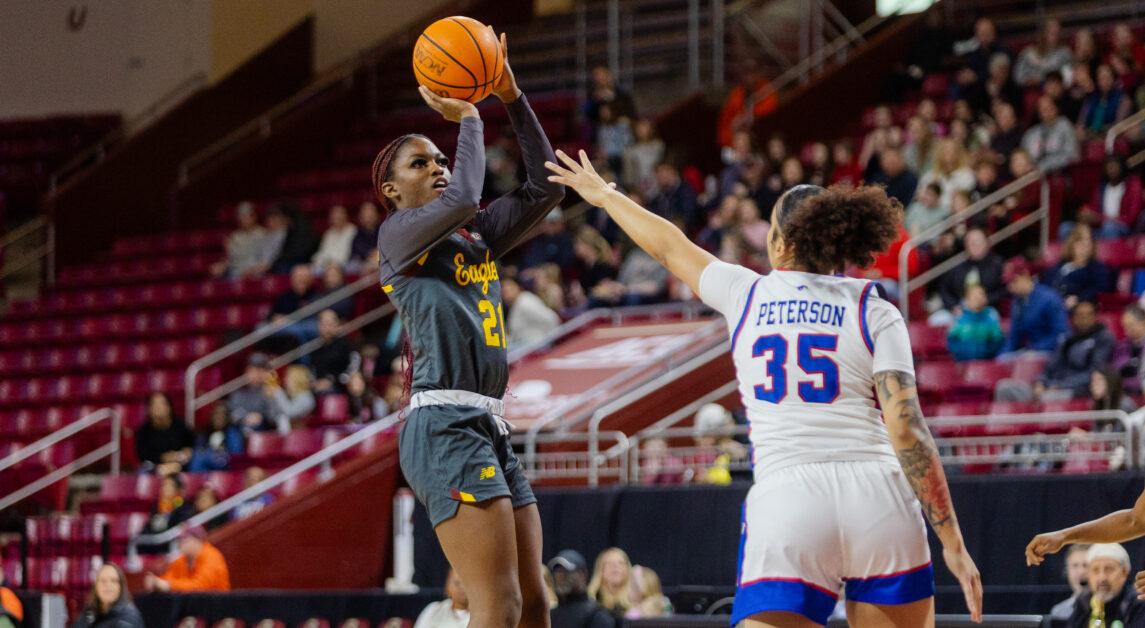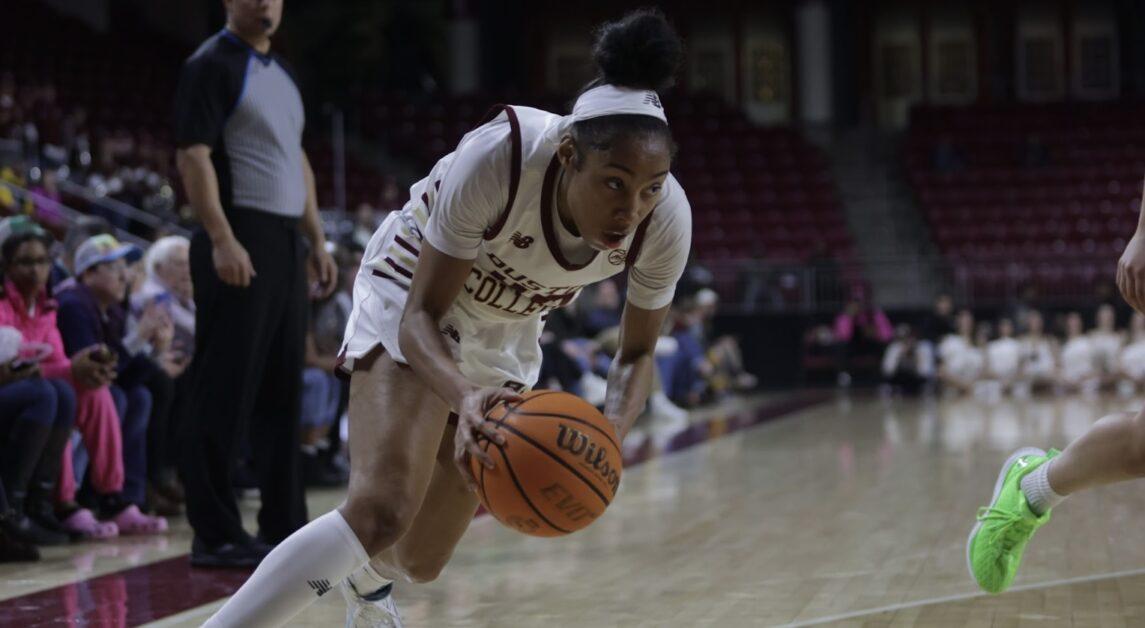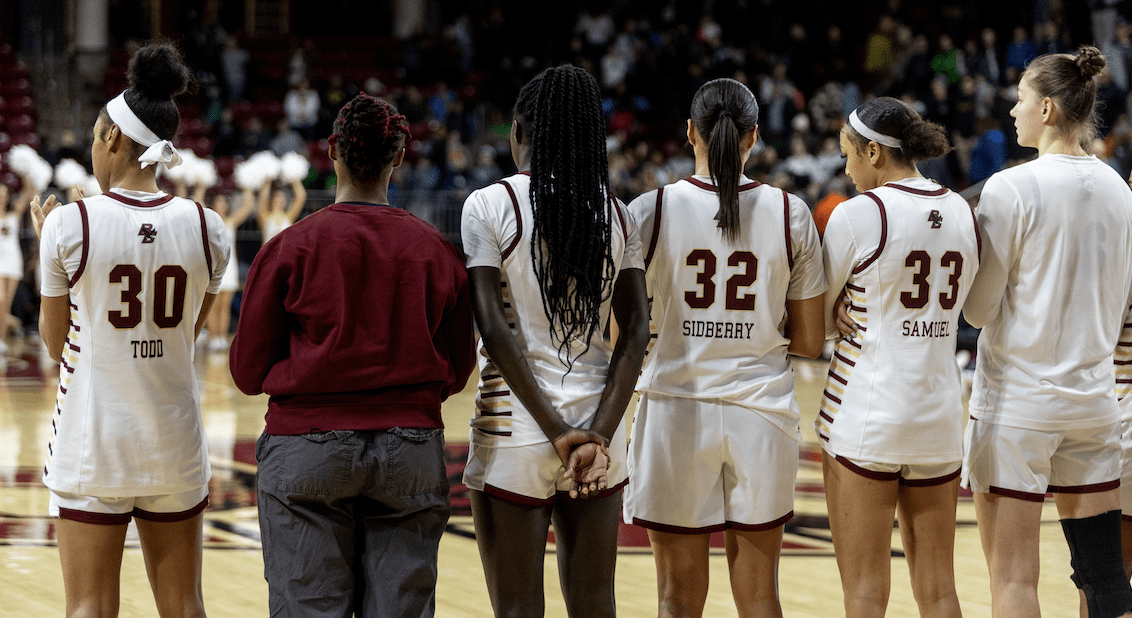With 7:25 to play in the second quarter, Boston College women’s basketball forward Taylor Soule caught a pass in transition and made a quick jab toward the basket, only to be called for traveling. Frustrated, Soule flung the ball in the air in such dramatic fashion that the announcers speculated that she only failed to receive a technical because the shot clock obstructed the referee’s view.
Soule’s frustration was emblematic of the Eagles’ (10-9, 3-5 Atlantic Coast) performance, as sloppy play plagued them all night long in a 70-49 blowout loss to Virginia Tech (14-4, 4-3).
The game was BC’s third contest against ACC opponents in the last week. While the Eagles showed impressive form in their 81-70 loss to No. 5 Louisville and 55-48 win against Georgia Tech, they were unable to continue their strong run of play in Blacksburg on Thursday.
After the Eagles led wire-to-wire in their gritty defensive battle against the Yellow Jackets, they found themselves on the opposite end of the script against the Hokies. Virginia Tech led for all but the first two and a half minutes of the game.
Apart from the starting minutes, the Hokies led comfortably for the entire contest. BC trailed 18-7 at the end of the first period and never got closer than seven points.
Shooting woes hampered the Eagles all night. While they consistently found themselves with open looks in both transition and their half-court offense, BC’s shooters struggled to connect. BC shot 28.8 percent from the field and only hit on a pair of 3-point attempts despite Virginia Tech ranking in the middle of the pack nationally in terms of scoring defense.
Cameron Swartz particularly struggled, making only one of her 15 attempts. Although Swartz is BC’s third-leading scorer on the season, she has struggled with consistency and has turned in a number of poor shooting performances on a high shot volume. Thursday’s game was her seventh this season in which she shot at or below 33 percent.
Swartz’s shot selection was puzzling—she often pulled up for contested 3-pointers as soon as she received the ball or haphazardly tried to drive through multiple defenders in the lane, which crippled BC’s ability to run its offensive plays.
Swartz was not the only Eagle who struggled to get into a rhythm offensively. Emma Guy never seemed comfortable with her footwork on the block and only put up six points. Mikayla Dickens led the team with 12 points but was unable to find the open looks from the perimeter that she has capitalized on in recent games.
The Hokies put up a much more impressive offensive performance. While they still only shot 38.2 percent from the field, their ability to get out in transition and create open perimeter looks from off-ball screens allowed them ample opportunities at the rim.
Virginia Tech’s seven 3-pointers were a major factor in the Hokies’ win. Guard Aisha Sheppard connected on four of them, finishing with 19 points. Three-point shooting has been a strength for the Hokies all season, as they rank in the top 40 nationally in both 3-pointers per game and 3-point shooting percentage.
Trinity Baptiste poured in 20 points on 9-of-12 shooting off the bench for the Hokies, and center Elizabeth Kitley collected her fourth double-double of the season with 14 points and 11 rebounds.
The Eagles will need to return to the quality that they displayed against Louisville and Georgia Tech if they want to be competitive in their upcoming clash against Florida State. While the Eagles and their No. 3 ACC scoring offense have shown that they have plenty of firepower, Swartz and Guy must be able to find their stroke more consistently.
Featured Image by Maggie DiPatri / Heights Editor


